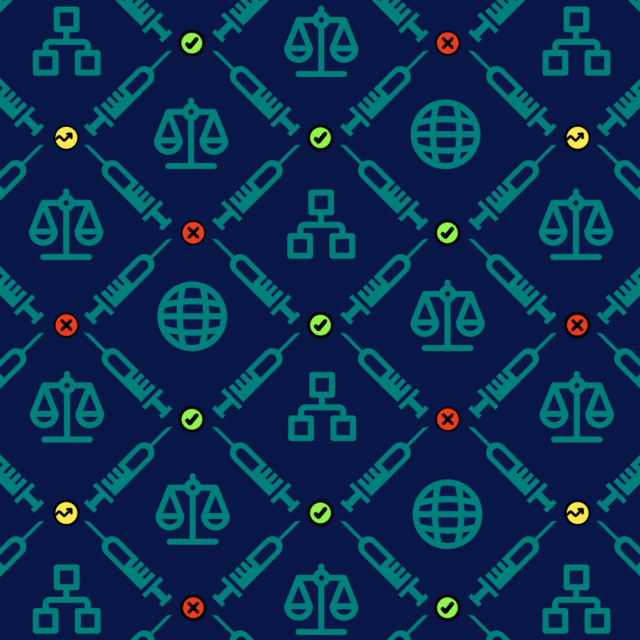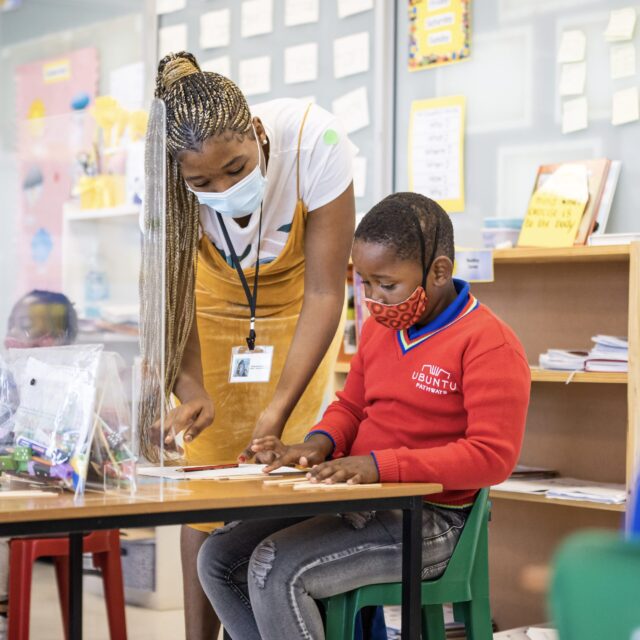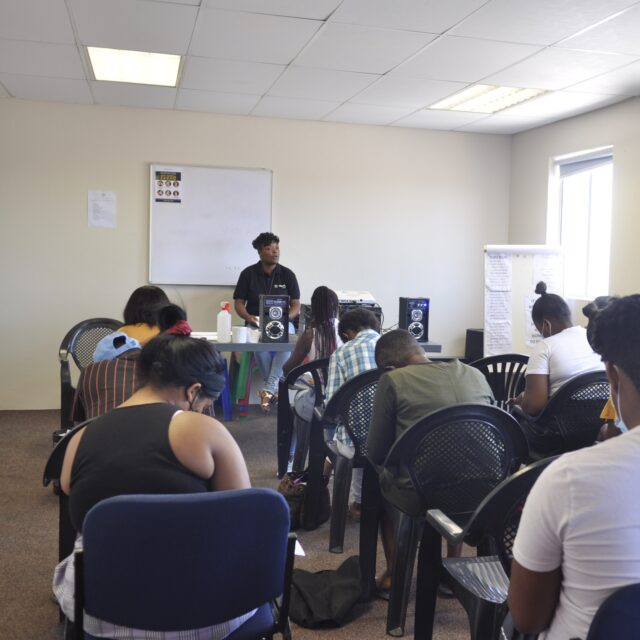Having safe and effective vaccines a full year since the first reported cases of COVID-19 is a historic scientific achievement. It has shifted the conversation from “if” we will see an end to the pandemic to “when.”
But COVID-19 will not end with just a vaccine. It ends when everyone, everywhere has access to it. If the virus remains unchecked anywhere in the world, it will continue to move across borders, mutate, and drastically impact the global economy. Prioritizing the fair distribution of vaccines will end the pandemic faster, save lives, and save the global economy trillions of dollars.
That’s where ONE’s Vaccine Access Test 2.0 comes in. It assesses how well pharmaceutical companies and G20 countries are improving global access to COVID-19 vaccines. We recently updated the methodology to better reflect the urgent actions needed now to prioritize access based on global cooperation and increasing supply for all.
Here are the latest findings for March 2021.
The latest findings
The Vaccine Access Test has raised the bar to measure what it takes to be advancing vaccine access, especially for high-income countries. The four major trends we are currently seeing are:
- Rich countries monopolizing vaccine doses is the biggest barrier to global vaccine access.
- Those leading and lagging behind among pharmaceutical companies are separated by their commitment, or lack of commitment, to COVAX.
- The countries that have the most to gain from equal access to vaccines are leading the way on steps to secure global vaccine access.
- Through dose sharing, rich countries have the opportunity to improve global vaccine access.
The latest scores
Currently, the countries leading in global vaccine access (the highest scoring nations with a score of 10 out of 20 points) are Germany, Argentina, and South Africa.
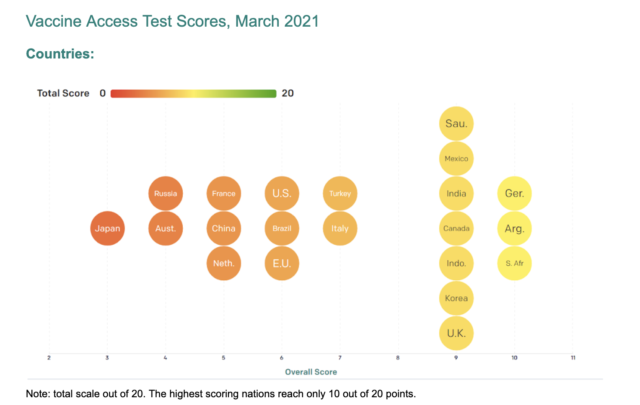
The pharmaceutical companies currently leading in global access to vaccines are Sanofi and GSK (with the highest scoring countries with a score of 9 out of 20 points), followed by AstraZeneca, Novavax, and Johnson & Johnson.
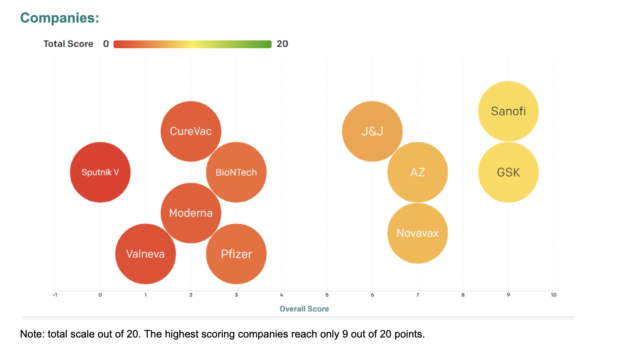
What happens next
Right now, it’s in everyone’s interest to prioritize global vaccine access. Ensuring that people everywhere have access to the vaccine, beginning with the most vulnerable, key workers, and healthcare professionals, is the fastest way to end the pandemic. Lack of doing so will prolong the pandemic — here’s how:
- The unchecked virus continues to mutate. Currently, there are over 4,000 variants of COVID-19 and some are more transmissible than others. If the virus continues to mutate, the possibility of new and more dangerous variants increases. The only way to prevent this and slow transmission of the virus is through widespread vaccination.
- Vaccine hoarding could cost the global economy up to US$9.2 trillion, with richer countries bearing half those costs.
- There could be twice as mean COVID-19 deaths if rich countries continue to monopolize the first 2 billion vaccine doses.
As the fight to end COVID-19 everywhere and secure global vaccine access continues, countries and pharmaceutical companies must take the necessary steps to improve global access. These steps include:
- Temporarily loosen trade restrictions that impact the timely manufacture, affordability, and distribution of vaccines.
- Continue to support funding for COVAX.
- Implement a vaccine sharing arrangement.
- Press pharmaceutical companies to participate in the World Health Organization’s COVID-19 Technology Access Pool (C-TAP) patent pool.
- Mobilize the funding needed to make sure that all countries are able to cover their vaccine requirements.
Learn more about our Vaccine Access Test 2.0 and the latest findings.
